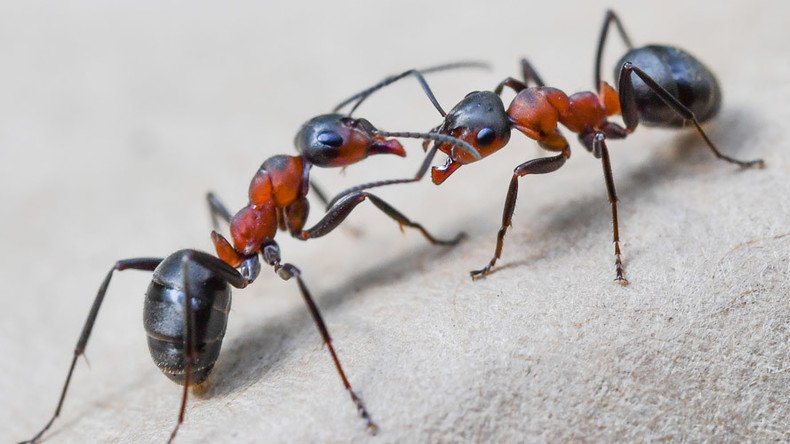Gene-edited mutant ants create chaotic colony

Scientists using radical new technology to create the first-ever mutant ants have been left stunned by the affect their experiments have had on the insects’ social life.
Researchers employed CRISPR-Cas9 gene-editing technology in an attempt to overcome the complex social roles of two different kinds of ants. The plan was designed to create more ‘mother ants’ capable of giving birth to a future generation of mutants.
In both species – Indian jumping ants known as Harpegnathos saltator and clonal raider ants Ooceraea biroi – the removal of genes that are crucial to the development of ants’ odor receptors resulted in a near-complete breakdown of the society. The tests saw ants wandering away from the colony and refusing to forage for the group.
"Suddenly these ants aren't really social any more,” said Rockefeller University biologist Daniel Kronauer, an author of one of the studies. “They just walk around.”
The two studies, published in the journal Cell along with a third about brain hormones affecting behavior, could open the door to new model organisms.
New issue is out and it's full of... ants? Or should I say mutAnts? Find out more at https://t.co/T0Y9dWHa5Dpic.twitter.com/9uDj9ZUfZN
— Cell at CellPress (@CellCellPress) August 10, 2017
As they were looking to model communities, scientists focused on ants for their complex way of life, social hierarchy and process of reproduction.
"There's a lot of interesting biological questions that you can study with ants that you can't study with fruit flies or even mice," said Kronauer.
In the event that a colony of jumping ants loses its queen, soldier ants usually engage in antennae duels to become the colony’s next ‘pseudo-queen.’
However, after the mutation, isolated jumping ants would still become pseudo queens but often laid very few eggs. They were also said to have been poor mothers.
Caterpillar cataclysm: ‘Exploding zombie virus’ on the rise, wildlife experts warn. 🐛 https://t.co/NXovwWm98o
— RT UK (@RTUKnews) August 5, 2017
Meanwhile, mutated jumping ants which remained part of a colony would not engage in duelling following the loss of a queen - instead they twitched their antennae alone.
The clonal raiders also displayed strange behavior, with one loner ant seen creeping into a colony to steal an egg before grooming it with its antennae.
Soldier ants live for a total of seven months, while psuedo-queens can live as long as four years. Claude Desplan, a New York University biologist and an author of one of the studies, said that the human equivalent would be like having twins, one aged 85 and the other aged 550.
“Expanding by a factor of 10 is unheard of,” he said.












